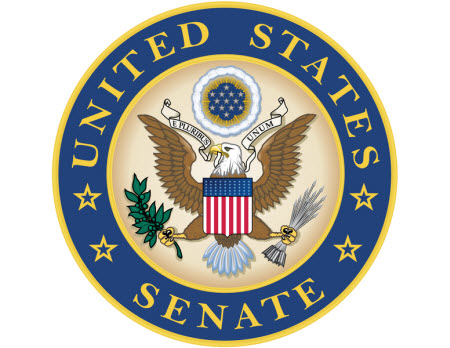Senate Report Cites Charter, TWC Overcharges
The smarter way to stay on top of the multichannel video marketplace. Sign up below.
You are now subscribed
Your newsletter sign-up was successful

Charter and Time Warner Cable (now part of Charter) have failed to refund customers for overcharges, but both have taken steps to correct the issue, according to a copy of a staff report from the Senate Permanent Subcommittee on Investigations.
The report found that MVPDs vary greatly in how they handle billing overcharges, but that while "Time Warner Cable and Charter have procedures for identifying overcharges and removing them from customers’ bills prospectively, [n]either company, however, has automatically provided full retroactive refunds or credits for past overcharges."
By contrast, the report said, "Comcast and DirecTV provide automatic refunds or credits to overcharged customers, while Dish’s billing system is designed to prevent these types of overcharges from occurring in the first place."
The report comes as the subcommittee holds a hearing on cable customer service and billing that will feature execs from those companies.
Related:Senate Subcommittee Eyes Fall Wrap-Up for MVPD Investigation
The report found that "between January and April, Time Warner Cable overbilled customers nationwide an estimated $639,948," and projected that in 2016, "Time Warner Cable will overbill customers nationwide a total of $1,919,844."
It said Charter had not completed the "underlying work necessary to determine how much it has overbilled customers," but said the MSO had informed the subcommittee it overbilled by at least $442,691 per month.
The smarter way to stay on top of the multichannel video marketplace. Sign up below.
The subcommittee is headed by Rob Portman (R-Ohio) and Claire McCaskill (D-Mo.).
Related:McCaskill Hammers MVPDs Over Customer Service, Fees
"Time Warner Cable estimates that, in 2015, it overbilled 40,193 Ohio customers a total of $430,393 and 4,232 Missouri customers a total of $44,152," the study found, while "Charter estimates that it has annually overcharged approximately 5,897 Missouri customers a total of $494,000 each year. Charter does not provide service in Ohio."
The report also said Charter and Time Warner Cable have taken steps to correct the situation as a result of the investigation.
"Each month, Time Warner Cable performs an audit comparing its billing records with service records," the report said. "Going forward, the company will provide an automatic one-month credit to anyone who is identified in the audit as having been overcharged. Time Warner Cable will not, however, investigate when it began overcharging customers unless customers bring specific concerns to the company’s attention, nor will it provide a full refund dating back to when the overcharge began. Similarly, Charter will provide customers with a one-year credit for any equipment overcharges. Charter has also implemented systemic controls that it says will prevent equipment overcharges in the future."
Charter responded in a statement: “Since 2012, we have invested $7 billion in network improvements and added more than 7,000 jobs resulting in growing and longer customer relationships. An audit of our set-top boxes charges over the last nine months found them to be over 99 percent accurate. To move us closer to 100 percent accuracy and permanently resolve this issue, we have installed new controls to ensure discrepancies are caught and eliminated on a daily basis. Customers who were incorrectly charged for set-top boxes are being notified and given a 12-month credit for these fees.”
Charter said it believes it now has a system in place to fix the mismatches between equipment and billing going forward, adding that it has been auditing since last summer and and has found that it now has a 99.4% accuracy rate between equipment and billing. The MSO said it is working to eliinate the .6% error rate.
It said it is now running daily audits to catch any mismatches and correct them. It is providing a 12 month credit to those who have been overcharged.
John Keib, former EVP and COO for residential services at Time Warner Cable, pointed out during the hearing that Time Warner Cable had been undercharging more than it was overcharging.
Portman said the undercharges don't help those who are being overcharged. The point was that when an overcharge was discovered, customers be made whole, not just giving them a 12-month credit, or in the case of legacy TWC systems, only a month. Portman pressed Charter on why only a month.
Charter explained it this way in its testimony: "In May of 2016, Charter completed its acquisition of Time Warner Cable. At just a little more than 30 days post-closing, Charter has been advised that TWC currently catches and corrects any overcharges on a monthly basis," the company said. "We will put controls into place to catch such instances daily, as we now have installed at Charter, but that will take approximately 60--‐90 days. Until then, we will proactively issue a one month credit to any customer that the current monthly process reveals was overcharged."
Portman said auditing was a step forward, but the company was still not fully compensating those who had been overcharged.
McCaskill said the MVPD business model appears to be to set a low, promotional entry price, upsell, then deal with angry people in a way to calm them and keep them. Nobody knows how to get the best price, Said McCaskill, and the secret sauce appears to be getting mad.
McCaskill said she was really frustrated by "never advertised" secret rates offered by retention agents. Noone on the panel disagreed that such rates were offered. She said that was the kind of "hide the ball" regime that angers customers.
Contributing editor John Eggerton has been an editor and/or writer on media regulation, legislation and policy for over four decades, including covering the FCC, FTC, Congress, the major media trade associations, and the federal courts. In addition to Multichannel News and Broadcasting + Cable, his work has appeared in Radio World, TV Technology, TV Fax, This Week in Consumer Electronics, Variety and the Encyclopedia Britannica.

